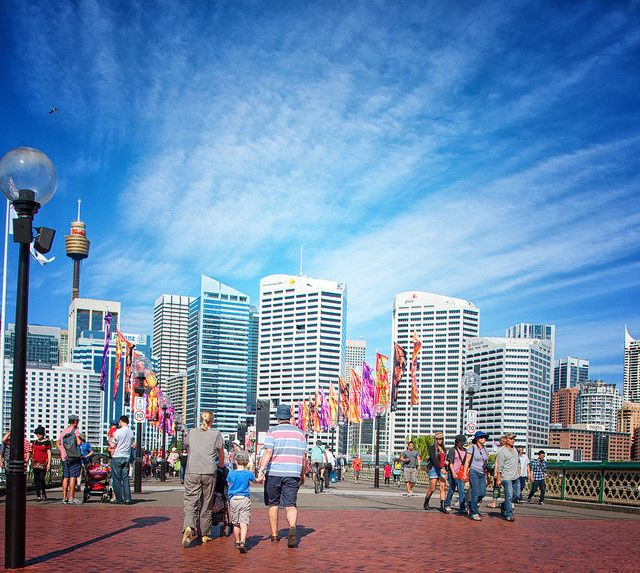Living In The Most Walkable Cities Might Make You Healthier, But It Won't Make You Happier

If you’ve ever hunted for a new home or apartment, you may have come across a website called Walk Score. You type in your new place’s address and Walk Score determines how “walkable” it is by finding out how far places like bars, grocery stores, and public transit stations are from your location. Then, it gives you a walkability score (out of 100) depending on how easy it is to get to these places from your new address. Now, one might think that the more walkable your area is, the healthier and happier the population would be. But a new study argues that healthy doesn’t always equal happy.
Conducted by the University of Virginia and published in Applied Psychology, the study found people who live in walkable cities are generally healthier than those who live in cities dominated by cars — but they aren’t any happier. This flies in the face of studies that show exercise can ward off depression, as well as the notion that the more active you are, the happier you are.
Oishi and his team used data from more than 177,000 people living in 703 metropolitan and micropolitan regions around the country. Micropolitan areas are defined as one or more counties adjacent to metropolitan areas with at least one core urban area consisting of between 10,000 and 50,000 people. The researchers obtained this data from the Behavioral Risk Factors Surveillance System survey conducted in 2005, which ranks as the largest telephone survey of health in the U.S.
The team found that people who live in walkable cities were noticeably healthier than those who lived in the suburbs or rural areas. Overall, they had lower body mass indexes (BMI) and the participants self-reported being in pretty great shape. However, the researchers found that despite being healthier, there was no correlation between living in a walkable city and levels of reported happiness.
The researchers suggest this goes back to how people measure their own happiness. "NYC, San Francisco, [and] Boston are all very walkable and healthy," lead author Shige Oishi, psychology professor at UVA, told Tech Insider. "But, they are the cities with quite a bit of inequality. Many people might compare themselves with a small number of super well-to-do in those cities, which might affect their life satisfaction negatively."
One explanation for the disconnect between living in a walkable city and happiness is that urban life is sometimes incredibly busy. Oishi states, however, that these people aren’t stopping to enjoy their surroundings. He says an increased focus on leisure walking — not commuting walking — would help people in urban cities become happier. He points to cities like Seattle and Boulder, Colo., as places where residents can get away from the stress of a metropolis and walk, run, or bike at their leisure. The key, Oishi says, is to appreciate the limits of urban walkability and make the most of it.



























